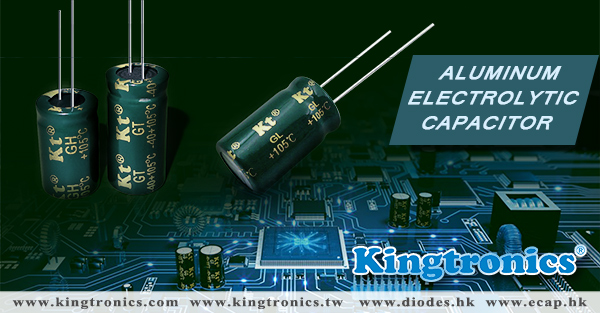Kt Kingtronics Tell You Instructions for Using Aluminum Elec. Caps
1. DC electrolytic capacitors can only be used on DC circuits, and their polarity must be marked in an appropriate position or next to the conductor/terminal.
2. If the polarity of the circuit is unclear or unclear in the circuit loop, it is recommended to use a non-polar electrolytic container.
3. The working environment temperature of electrolytic capacitors should not exceed the specified operating temperature range.
4. Electrolytic capacitors should be stored in low temperature and dry places. If the storage period is long, they should be re aged with rated voltage before using.
5. The ripple current passing through the electrolytic capacitor should not exceed its allowable range. If it exceeds the specified value, electrolytic capacitors with high ripple current resistance should be selected.
6. When in use, the working voltage of the electrolytic capacitor should not exceed its rated voltage.
7. High temperature heating devices such as electric soldering irons should be kept at an appropriate distance from the plastic shell of the electrolytic capacitor to prevent the plastic sleeve from cracking due to overheating.
8. When welding electrolytic capacitors, the welding time and temperature should not exceed 10 seconds and 260 degrees Celsius.
9. Applying excessive force to the guide pins and terminals will damage the internal structure of the electrolytic capacitor










